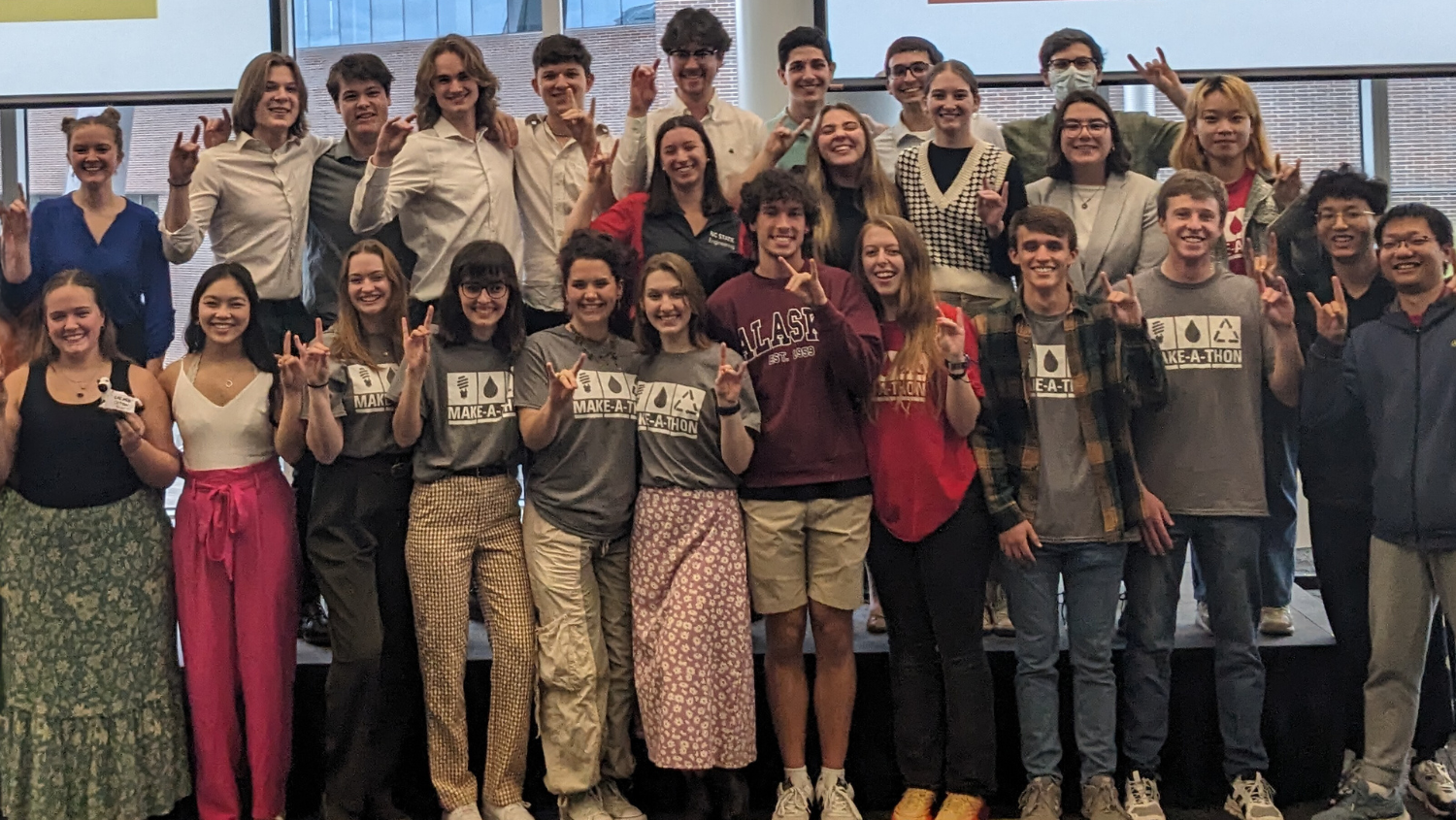Make-A-Thon 2024: Innovation for Good

Make-A-Thon is NC State’s annual sustainability innovation challenge for students. During this three-day competition Jan. 26-28, nearly 250 students in 62 student teams researched, designed, prototyped and pitched a new solution that addressed a sustainability challenge.
This year’s winning idea was the Tuffy Tumbler, a reusable cup with RFID technology that could be linked to a student’s dining account to enable the purchase of drink plans without the waste created by disposable cups.
Additional Make-A-Thon awards included:
- Second Place: A process for cotton gin waste from the textile industry to be turned into a supplemental food option for cattle.
- Third Place: AI-powered detection system that could be installed in campus dining halls to analyze the types of leftover food on returned plates, helping to establish patterns that could result in less food waste.
- Best Use of Textiles Award: Long-term erosion control could be created from NC-grown hemp fibers and biomass waste instead of plastic. These wattles would embed pouches of native and local wildflowers, creating a biodegradable product.
- Judges’ Choice Award: An app that gamifies plogging, which is jogging while picking up litter, and could result in a reduction of litter in a community.
- Best Prototype Award: The creation of a zip-tie with dual-directional teeth results in a reusable product, which reduces plastic waste.
- Best Integration of Social Responsibility: In Ghana, where many women don’t have access to clean feminine hygiene products, one of the country’s invasive plant species could be used to produce eco-friendly and non-toxic menstrual pads that would be available at distribution centers around the country.
The hallmark of Make-A-Thon is its interdisciplinary approach. Teams consist of members from at least two colleges.
“We really enjoyed working together in an interdisciplinary way. It was very cool to have that interdisciplinary approach because [our solution] is something we never would have thought of [otherwise],” said Rosie Fisher, a textiles engineering major who was on the team that won the Best Use of Textiles Award.
The interdisciplinary component brought some students to Make-A-Thon who quickly discovered the value of their skills and contributions.
“Every time we made an idea that worked, we all had a light bulb moment,” said Rachel Giles, a communications major who was part of the team that won the Best Integration of Social Responsibility Award. “I thought Make-A-Thon was such a cool experience. We used equal amounts of our expertise to make our project what it is and we couldn’t have done it without each other.”
The competition engaged more than 80 campus, industry and community members in mentorship of teams, as well as judges for the Make-A-Thon finale. These volunteers not only made the competition possible but also encouraged students to keep going.
“Every round of judging just encouraged us more and more because the judges kept saying that we had a really great idea,” said Lindsay Dodson, a biological and agricultural engineering major. “[The idea is] all something we were super passionate about and it’s definitely not going to stop here.”
All student teams are encouraged to take their idea to the next level with options to secure funding for further exploration and development of the prototype. In fact, 85% of teams competing in this year’s Make-A-Thon indicated interest in continuing to improve their solution.
Make-A-Thon returns in January 2025 for its 10th year. Contact the University Sustainability Office for sponsorship opportunities and other ways to get involved.
- Categories: